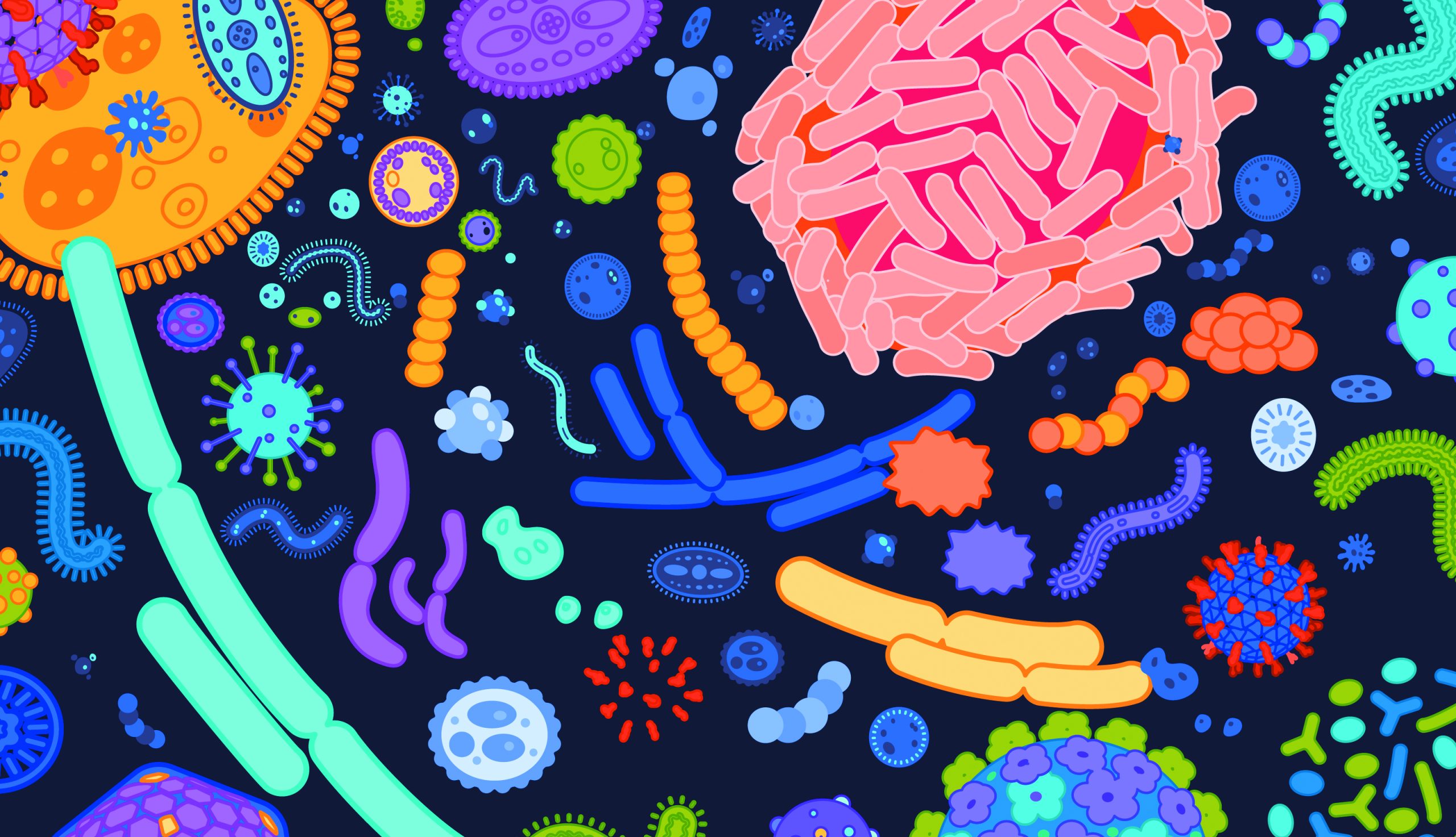Author_Elizabeth A. Dorn, M.S.N., C.R.N.P
PART ONE: Since February is American Heart Month, I’ll bet you thought we were going to include an article about heart health. Well, kind of. Did you know that the microbiome affects heart health? We’ve been hearing a lot about this microbiome. What is it and how can it improve our health? Read on!
The microbiome is an organism which lives in largest numbers in our large and small intestines, but also in other parts of our body. It consists of trillions of microorganisms (also called microbes or microbiota) that include bacteria, fungi, parasites, yeasts and viruses. In a healthy person, the microbiota live harmoniously in our body. Most are symbiotic (in which both the human body and the microbiota benefit) and some, in smaller numbers, are pathogenic (which promote disease). When the body is in balance, pathogenic and symbiotic microbiota coexist peacefully. Should there be a disturbance in that balance, though, whether due to infectious disease, certain diets, or the prolonged use of antibiotics or other bacteria-destroying medications, inflammation can result. Inflammation can lead to increased susceptibility to diseases including heart failure, heart attack and coronary artery disease, as well as certain cancers, autoimmune diseases and mental health conditions. Where does the microbiome originate? We’re first exposed to microbiota as an infant, during delivery in the birth canal and through the mother’s breast milk. The mother’s DNA determines which microorganisms the infant is exposed to, but environmental exposures, aging, illness, lifestyle, diet and the use of antibiotics can, and do, change one’s microbiome to be either beneficial to health or place one at greater risk for disease.
Let’s talk first about how the microbiome benefits the body. In a healthy person microbiota provide protection from disease-causing organisms that enter the body through drinking or eating contaminated water or food. They also synthesize certain vitamins and minerals and break down compounds that the body has difficulty digesting. The resultant elements are necessary for muscle function, and important in the prevention of chronic diseases, including certain cancers and bowel disorders. Some microbiota are considered protective as they prevent the overgrowth of harmful bacteria in the gut, which is a major site of immune activity. The gut is a key player in the body’s immune system – over 70% of our immune cells reside in the gut! So, habits that protect the micobiome are ultimately helping protect our bodies.
What happens when the microbiome is adversely affected, such as in periods of infection, high stress, too little sleep and/or exercise, excessive alcohol consumption, poor dietary habits and the taking of antibiotics? Much study has been performed regarding the result of gut dysbiosis, the term for imbalance of gut microbiota associated with an unhealthy outcome. It has come to the attention of researchers that people with certain ailments, such as inflammatory bowel disease, irritable bowel syndrome, obesity, type 2 diabetes, and several types of cancer have deviations in their gut microbiota. An imbalance in gut health has also been associated with anxiety and depressive disorders.
What makes a healthy microbiome? For the microbiome to flourish, the right balance must exist, with the beneficial species dominating the pathogenic (remember?- disease causing). Microbiome diversity is important, which means that having a wide array of microbes in our gut makes our microbiome more capable and resilient in terms of preventing certain chronic diseases. If one microbe is unable to fulfill its function, another is available to step in. Generally, gut microbial diversity decreases with aging, most likely due to changes in physiology, diet, medication and lifestyle. As we age certain chronic conditions are more likely to manifest themselves. This certainly doesn’t mean that everyone who is getting older has a deficient microbiome, but it’s especially important for senior citizens to form habits that support healthy gut microbiota.
Fortunately there are ways to improve the diversity of our gut microbiome. In next month’s issue of Connections, look for discussion about the variety of ways we can do just that. Included will be information regarding supplemental players in this effort: probiotics, prebiotics and postbiotics. In the meantime, discuss the gut microbiome with your healthcare provider and see what she/he has to offer in terms of your unique makeup and health.


